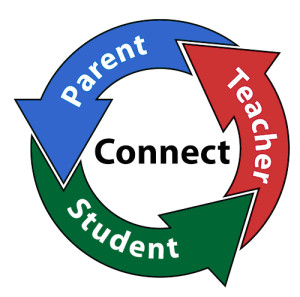A SINGLE MOM TALKS ABOUT MAKING CONNECTIONS WITH SCHOOL
 A dear neighbor friend and I were talking one night. “I want to call my son’s teacher. His grades are bad in her class and he insists that he does all the work. We think he needs a different teacher because my boy tells me he doesn’t like Mrs. X and she picks on him. What do I do?”
A dear neighbor friend and I were talking one night. “I want to call my son’s teacher. His grades are bad in her class and he insists that he does all the work. We think he needs a different teacher because my boy tells me he doesn’t like Mrs. X and she picks on him. What do I do?”
Yes, in my counseling role I’ve been on the receiving end of lots of telephone calls and conferences of this kind. They’re not fun to get, but I do respect the intentions behind them.
However, when contacting school personnel for a concern or crisis, your approach as a parent is important. The Blame Game or the Squeaky Wheel will likely turn off the very people who can help you. Here’s an example of a better approach:
“I’m not sure if you’re the right person to speak to, but can you point me in the right direction for assistance?” and “If this isn’t a good time, when is the best time to meet with you to discuss my teen? I’ll bring him along with me.”
THE REAL ISSUES
When there’s an apparent conflict between your student and a teacher, begin by reminding yourself that you are not your teen’s best friend. You are the parent. And as such, you must make difficult and adult choices for your teen. So the first issue for you is to understand both sides of the problem to arrive at a position to make a balanced decision on behalf of your child.
Second, it’s not about you, and you must never replace your child with yourself as a participant in the dispute. But you are his sounding board, so listen to him without judgment of any kind. Simply hear him out and summarize what he’s presented to you in a way that will let him know that you’re clear about what he is saying. Doing this will send the message that you’re his number one cheerleader. However, this doesn’t promise that you will defend his position at all costs because that’s not always the truth, at least not at the moment you first hear about a ‘situation.’ Nonetheless, you may be surprised at his surrender to your hug or touch when you offer it after a tough day at school.
MY SUGGESTIONS
Have a pen and paper ready to jot down information and names. Don’t call the school when you’re driving in your car or from any place where you can’t focus on the conversation and write things down. It’s best that you call from home, and at a time when there are no distractions like television or the presence of other children. “Quiet” and “private” are the words to remember as you get ready to call.
Accept as a given that teachers, coaches, office staff and administrators have lots of experience in their chosen profession. They’ve seen and heard many different situations throughout their careers and are committed to assisting parents and students. They are not automatically ‘the enemy’ regardless of how your child views them.
Before attending a parent/teacher conference, write down your questions and tell the teacher that you need to ask them before the conference is over. She’s with your teen five days a week, so use her observations objectively and try not to be defensive. Give the teacher your phone number if she has a concern, can’t answer a question without further research, or simply wishes to call you at another time (which is the case during a parent night when a number of visitors may be waiting for her attention). Before you leave, make sure that your child’s teacher knows that your teen is very important to you and that you’re willing and supportive in working with the teacher to resolve any school-related problems.
The aforementioned is one of the stories from “Parents in Highschooland: Helping Students Succeed in the Critical Years,” Karyn Rashoff’s caring and supportive account of thirty-three years of dedicated work as a high school guidance counselor. It is available as a paperback as well as an ebook, in bookstores, major book retailers and online booksellers, as well as directly from the publisher at www.BarkingDogBooks.com.
 During my years in the guidance office, I knew that all parents loved their teens with all their hearts. Some just have more productive skills they use with their teens at home. These parenting skills can be learned and used at home with your teens. Just be patient with yourself and practice them consistently.
During my years in the guidance office, I knew that all parents loved their teens with all their hearts. Some just have more productive skills they use with their teens at home. These parenting skills can be learned and used at home with your teens. Just be patient with yourself and practice them consistently.

 With summer vacation in full swing, your teen may look like a couch potato, letting time slip through his fingers while he meanders around the house or neighborhood with his friends. Here is one way to keep your teen engaged in learning – a fun way – during the summer: let him choose a book from a bookstore (used bookstores are great) or the library or an eBook and pay him to read it. What?? Did I say, “Pay him to read it”?? Let him choose how much; you might be surprised at his reasonable rate. On the other hand, he may want a new car for reading a book – to test you and get more information out of you. It seems that a teen tests us by pushing our buttons to see how far he can go, but it is really information-gathering.
With summer vacation in full swing, your teen may look like a couch potato, letting time slip through his fingers while he meanders around the house or neighborhood with his friends. Here is one way to keep your teen engaged in learning – a fun way – during the summer: let him choose a book from a bookstore (used bookstores are great) or the library or an eBook and pay him to read it. What?? Did I say, “Pay him to read it”?? Let him choose how much; you might be surprised at his reasonable rate. On the other hand, he may want a new car for reading a book – to test you and get more information out of you. It seems that a teen tests us by pushing our buttons to see how far he can go, but it is really information-gathering. A dear neighbor friend and I were talking one night. “I want to call my son’s teacher. His grades are bad in her class and he insists that he does all the work. We think he needs a different teacher because my boy tells me he doesn’t like Mrs. X and she picks on him. What do I do?”
A dear neighbor friend and I were talking one night. “I want to call my son’s teacher. His grades are bad in her class and he insists that he does all the work. We think he needs a different teacher because my boy tells me he doesn’t like Mrs. X and she picks on him. What do I do?”